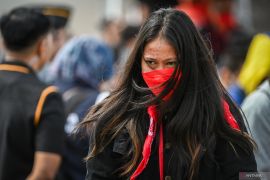"We call on all stakeholders, including campus, to synergize and collaborate for the best interests of victims and give a deterrent effect to the perpetrators," she said in a statement released by her ministry here on Thursday.
She also encouraged the younger generation to care about fighting sexual violence — which, according to her, is an iceberg phenomenon — and be brave about speaking up against it.
Based on the National Survey of Women's Life Experiences (SPPHN) and the National Survey of Children and Adolescents' Life Experiences (SNPHAR), the incidence of violence against women and children has shown a decreasing trend.
In the period from 2018 to 2021, violence against children fell by around 16 to 25 percent, while violence against women decreased from 9.4 percent to 8.7 percent in 2021.
"However, the number of cases being revealed actually increased. This is attributed to the presence of stronger regulations and policies to protect victims, as well as the increasing courage of victims to report and the public starting to open up to this issue," she explained.
Based on data from the Ministry of Women’s Empowerment and Child Protection, the factors that lead to sexual violence in higher education environments include power relations, among other things.
She noted that victims often face stigma and thus, sexual violence cases often go hidden.
"This shows that there is a mistake in handling. We encourage all parties to have the courage to speak up and provide justice to the victims in order to give a deterrent effect to the perpetrator," the minister said.
Related news: Laws must provide protection from sexual violence: MPR
Related news: Awaiting implementation of regulations of Sexual Violence Crime Law
Related news: Boost service provider HR in implementing TPKS Law: minister
Translator: Anita Permata, Raka Adji
Editor: Azis Kurmala
Copyright © ANTARA 2024












